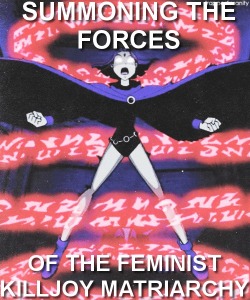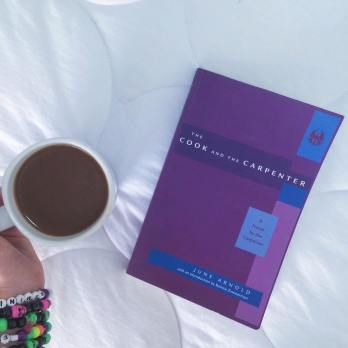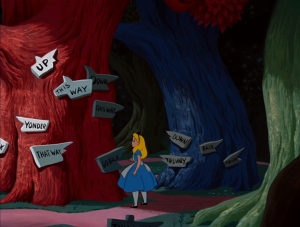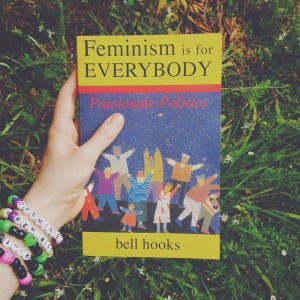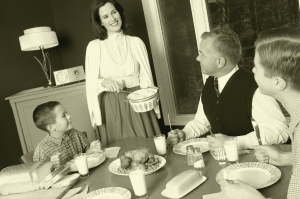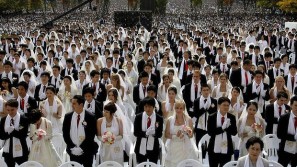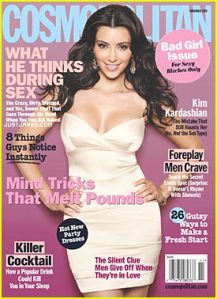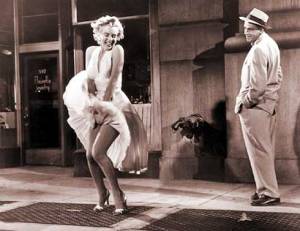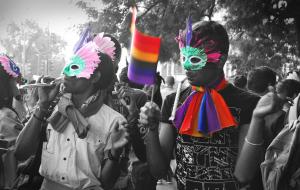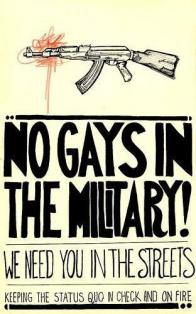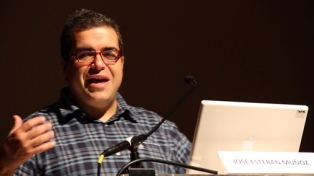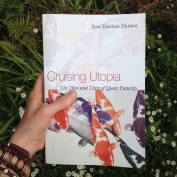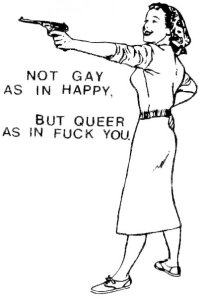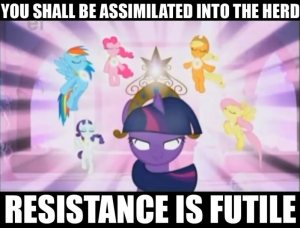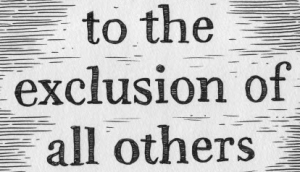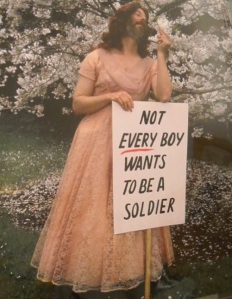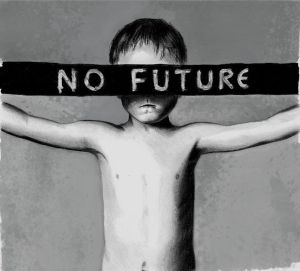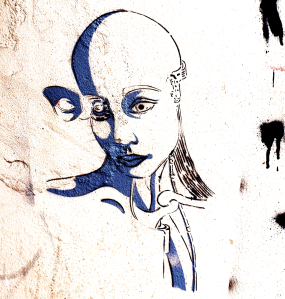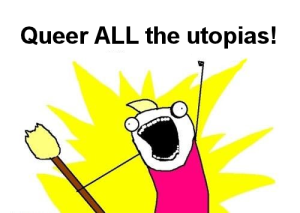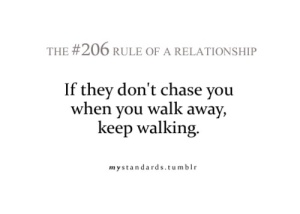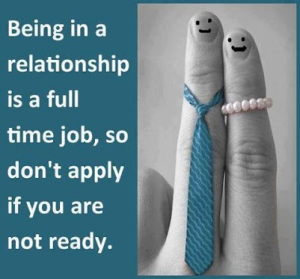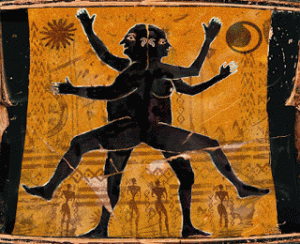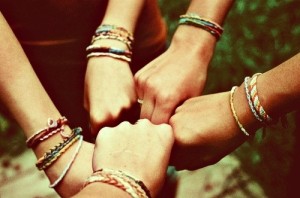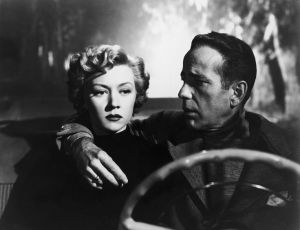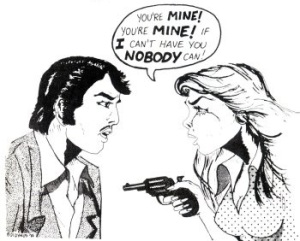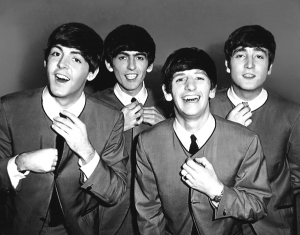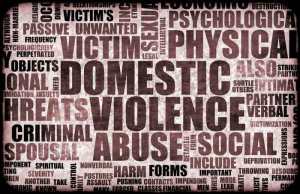“When those who have power to name and to socially construct reality choose not to see you or hear you, whether you are dark-skinned, old, disabled, female, or speak with a different accent or dialect than theirs, when someone with the authority of a teacher, say, describes the world and you are not in it, there is a moment of psychic disequilibrium, as if you looked in to a mirror and saw nothing. Yet you know you exist and others like you, that this is a game with mirrors. It takes some strength of soul – and not just individual strength, but collective understanding – to resist this void, this nonbeing, into which you are thrust, and to stand up, demanding to be seen and heard.” – Adrienne Rich

Apparently, feminism is all about equality. All we want is for men and women to be equal, that’s all! Look, that’s the definition of feminism, you’re a feminist too then! We’re all feminists! I’m a feminist, but I’m not a lesbian, I shave my legs, and I’m not ugly! Oh, and I don’t hate men. That’s the extremists you’re thinking of. I’m not like that.
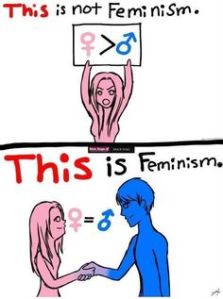 Why do we need to placate the patriarchy? Why have some of us watered down feminism so much that it becomes about “equality between men and women,” a lovely phrase signifying nothing? This defeats the entire purpose. Feminism should be radical. It should be extreme.
Why do we need to placate the patriarchy? Why have some of us watered down feminism so much that it becomes about “equality between men and women,” a lovely phrase signifying nothing? This defeats the entire purpose. Feminism should be radical. It should be extreme.
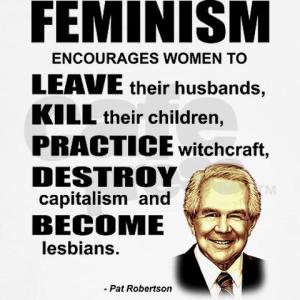 Feminism is ultimately about smashing the patriarchy. That goal encompasses a whole of lot of complicated, radical aims.
Feminism is ultimately about smashing the patriarchy. That goal encompasses a whole of lot of complicated, radical aims.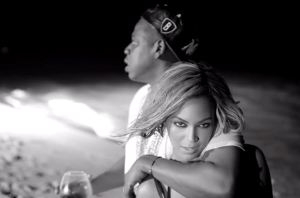
Of course, we need those sell-outs who pander to the system. So we have Beyoncé, constructing herself as a feminist icon while putting out music that glorifies domestic violence and sexual assault (“Drunk in Love”) and objectifies herself as a piece of marriageable property (“Single Ladies”). Then Katy Perry who claimed she was a feminist because “it just means that I love myself as a female and I also love men.” Um, what? Sometimes I need to hear statements like that, if only to remember what it was like before I ever stepped foot into a Gender Studies class. Even then though, I knew that performing desire purely for the male gaze (“I Kissed a Girl”) was pretty high up there on the list of anti-women activities.
 Fine, we need celebrities like that, if only to publicise the word “feminism” and perhaps encourage people to actually look into the word with a bit more care. And I am optimistic that a fourth wave of feminism is underway that is not spearheaded by celebrities but harnessing the radical potential of social media. It also appears that the masses are far more adept at using consumer culture to subvert patriarchy rather than prop it up, as Beyoncé enjoys. Perhaps we also need figures such as Sheryl Sandberg who empower women within the existing power regime, asking them to “lean in” to the white capitalist heterosexist patriarchy rather than question it. What is called “corporate feminism” has no ounce of radicalism to it, no recognition of the fact that their category of “woman” excludes women of colour, queer women, women with disabilities, poor women, and so on.
Fine, we need celebrities like that, if only to publicise the word “feminism” and perhaps encourage people to actually look into the word with a bit more care. And I am optimistic that a fourth wave of feminism is underway that is not spearheaded by celebrities but harnessing the radical potential of social media. It also appears that the masses are far more adept at using consumer culture to subvert patriarchy rather than prop it up, as Beyoncé enjoys. Perhaps we also need figures such as Sheryl Sandberg who empower women within the existing power regime, asking them to “lean in” to the white capitalist heterosexist patriarchy rather than question it. What is called “corporate feminism” has no ounce of radicalism to it, no recognition of the fact that their category of “woman” excludes women of colour, queer women, women with disabilities, poor women, and so on.
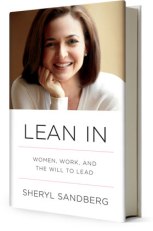 This is similar to the way first wave feminists fighting for the vote reassured the patriarchy that they were nurturing, gentle, and a civilising influence on the future citizens of the nation and should therefore be allowed a voice in reform. They used patriarchal constructions of women and femininity to gain rights and yes, most of them probably believed the arguments.
This is similar to the way first wave feminists fighting for the vote reassured the patriarchy that they were nurturing, gentle, and a civilising influence on the future citizens of the nation and should therefore be allowed a voice in reform. They used patriarchal constructions of women and femininity to gain rights and yes, most of them probably believed the arguments.
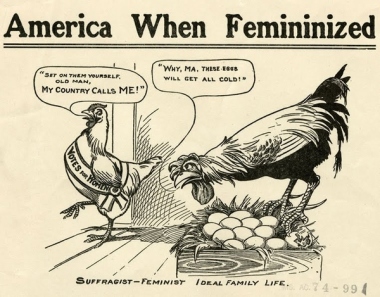
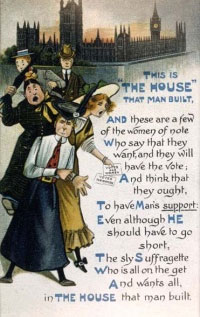 But why haven’t we moved on from the backlash against first wave feminists, who were apparently mannish man-hating monsters? That is still the popular conception of feminism.
But why haven’t we moved on from the backlash against first wave feminists, who were apparently mannish man-hating monsters? That is still the popular conception of feminism.
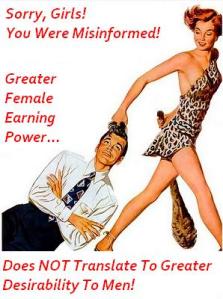 And the popular way to dispel that conception is by saying “No, we love men, that’s only the extremists, that’s radical feminists, the rest of us just want equality.”
And the popular way to dispel that conception is by saying “No, we love men, that’s only the extremists, that’s radical feminists, the rest of us just want equality.”
No.
It is the anti-feminists who have conjured up the image of man-hating feminists. This came from no truth except people who were invested in patriarchy feeling threatened by feminism. And so they should. Feminism should be petrifying if you are invested in patriarchy. This goes for men and women.
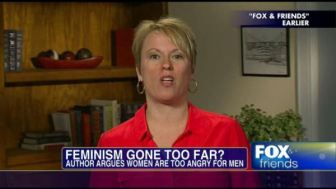 “It is easy to be considered a misandrist when men are socialised to feel entitled to women and our time. So, if you ignore them, you’re a misandrist. If you insist they leave you alone, you’re a misandrist. If you focus on building healthy female-centred relationships over relationships with men, you’re a misandrist. Misandry is basically prioritising your agency, autonomy and fellow women over men in a society that teaches you that being feminine relies on giving into men’s feelings of entitlement” – highly intelligent anonymous person.
“It is easy to be considered a misandrist when men are socialised to feel entitled to women and our time. So, if you ignore them, you’re a misandrist. If you insist they leave you alone, you’re a misandrist. If you focus on building healthy female-centred relationships over relationships with men, you’re a misandrist. Misandry is basically prioritising your agency, autonomy and fellow women over men in a society that teaches you that being feminine relies on giving into men’s feelings of entitlement” – highly intelligent anonymous person.
Patriarchy should be scared of feminists because we want women to stop being dependent on men. Politically, economically, socially, culturally, and sexually. For a woman to feel that her self-worth and survival have nothing to do with her attachment to a man is the ultimate threat to the patriarchy. Apparently the most insulting image is a woman made monstrous because of her independence from men. And the best way anti-feminists can think of to threaten feminists is to tell us we are not attractive to men. Because that is supposed to be the ultimate blow to any woman.
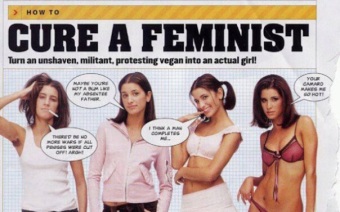 In Catharine MacKinnon’s words: “Socially, femaleness means femininity, which means attractiveness to men, which means sexual attractiveness, which means sexual availability on male terms.”
In Catharine MacKinnon’s words: “Socially, femaleness means femininity, which means attractiveness to men, which means sexual attractiveness, which means sexual availability on male terms.”
That is why feminism must be anti-patriarchy. That is why feminism must question every lovingly held idea of gender, what is “feminine” and “masculine,” and break the delusion that such things are biologically determined. It cannot simply be about equality between two pre-determined sexes. Because there is no such thing. It is patriarchy that has constructed a binary view of gender – that male and female are opposites, and necessary to one another. For this reason feminism must be queer. It must also be intersectional – that is, alive to the ways that race, class, ability, age and many more “identity markers” intertwine with gender. Mainstream feminism – that is, feminism that attempts to make itself appealing to the patriarchal status quo – is utterly heterosexist and cissexist. Women who are traditionally appealing to men are less of a threat. Where are the queer and trans* feminists in popular culture? Why is there still a monopoly of heterosexual-identified, cisgender women promoting feminism? That seems to defeat the radical purpose feminism has of smashing heteronormativity and the patriarchal idea that women’s energy is directed towards relationships with men.
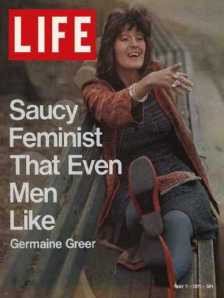 For feminists to go on the defensive, to always have to start from a point of saying “No we don’t hate men” only gives the winning point to the anti-feminists. It is the same as always having to start from the point of “Is global warming caused by humans?” in the climate crisis debate. It is a distraction. It wastes time.
For feminists to go on the defensive, to always have to start from a point of saying “No we don’t hate men” only gives the winning point to the anti-feminists. It is the same as always having to start from the point of “Is global warming caused by humans?” in the climate crisis debate. It is a distraction. It wastes time.
Hearing debates in mainstream media about whether we still need feminism is truly cringeworthy. We always go right back to definitional issues. While people who haven’t read Simone de Beauvoir or bell hooks are trying to grapple with the question of whether feminism excludes men, domestic violence is going on unhampered, thousands of objectifying ads are lining the streets and infecting the television, and male politicians are flooding parliament.
But when you have read these women, when you become alive to the fact that violence against women and the oppression of women isn’t some problem located in “third world countries,” it can be tough. It’s tough to see the overwhelming discursive and structural power that infiltrates your every move. It’s more comforting to ignore, to say, “That’s the way of the world.” I don’t want to go into “Women against feminism” because the trend is simply a whole lot of misguided foolishness and nothing else. But I mean those women who are not angry, who believe it’s easier to live with the patriarchy than go against the grain.
“Many women, I think, resist feminism because it is an agony to be fully conscious of the brutal misogyny which permeates culture, society, and all personal relationships. It is as if our oppression were cast in lava eons ago and now it is granite, and each individual woman is buried inside the stone. Women try to survive inside the stone, buried in it. Women say, I like this stone, its weight is not too heavy for me. Women defend the stone by saying that it protects them from rain and wind and fire. Women say, all I have ever known is this stone, what is there without it?” – Andrea Dworkin
Here are some common attempts the average citizen employs to shut down feminist spaces:
Get a life. Stop being paranoid. You’re making too much of this.
Ah, the tried and true way of shutting a woman up. Belittle her. Tell her she has nothing to back up her claims. Talk over her. Interrupt her. Laugh at her. She is over-emotional, irrational, perhaps explained by her menstrual cycle, which is a thing too disgusting to even mention but something we can fall back on when a woman gets out of hand. It takes a damn strong person to refuse to believe this. To see that this response actually justifies her fury, because of the very reason that is dismissed.
“Women hear it all the time from men. ‘You’re overreacting,’ we tell them. ‘Don’t worry about it so much, you’re over-thinking it.’ ‘Don’t be so sensitive.’ ‘Don’t be crazy.’ It’s a form of gaslighting – telling women that their feelings are just wrong, that they don’t have the right to feel the way that they do. Minimising somebody else’s feelings is a way of controlling them. If they no longer trust their own feelings and instincts, they come to rely on someone else to tell them how they’re supposed to feel” – Harris O’Malley.
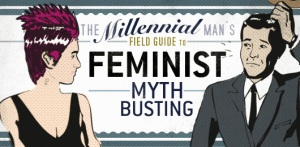 I’m not really interested in it. There are more important things than feminism.
I’m not really interested in it. There are more important things than feminism.
This implies a fundamental misunderstanding of the extent and all-pervasiveness of patriarchy. One of the most effective strategies of power structures is to make themselves invisible. If you can’t see them, if you internalise them as simply “normal” or “natural,” you can’t conceive of them as constructed, let alone figure out ways to challenge them. That’s why people laugh when you say the word “heteronormativity” or even “patriarchy” – to hear the names of these techniques of power is so out of the ordinary it becomes funny to people who have never got past their invisibility.
It’s also a misunderstanding of the way power works. People think that when you say “patriarchy” you are referring to some sort of group of white silk-suited men who write out 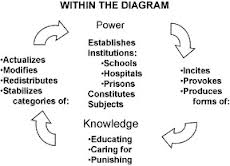 their methods for the oppression of women. But as we should have learned from Foucault, power is not possessed by individuals, it is diffuse. Power is normalised, internalised and everywhere. It is not top-down, meted out by superiors, but exercised and re-created again and again, every day, by everyone we come across. It isn’t one thing with one definition, it’s always changing. Nor is it merely repressive, it is productive. Our every conception of gender is part of a discourse that is everywhere. Feminism attempts to make the construction of gender clear, thus to make the sources of discipline clear, so we may find new ways. It will always be a process, because techniques of power are so complex.
their methods for the oppression of women. But as we should have learned from Foucault, power is not possessed by individuals, it is diffuse. Power is normalised, internalised and everywhere. It is not top-down, meted out by superiors, but exercised and re-created again and again, every day, by everyone we come across. It isn’t one thing with one definition, it’s always changing. Nor is it merely repressive, it is productive. Our every conception of gender is part of a discourse that is everywhere. Feminism attempts to make the construction of gender clear, thus to make the sources of discipline clear, so we may find new ways. It will always be a process, because techniques of power are so complex.
To say that there are more important issues is to ignore the interconnections of all of these techniques of power and knowledge. So the way we think about gender is intertwined with the military industrial complex and capitalism. This was the problem with Marxism and other left-wing movements. They failed to see that the relationship to the means of production that they took as the be-all-and-end-all intersects with patriarchy, and often such movements were as misogynistic as the regimes they struggled against.
Women have it worse in other countries.
What a terrible argument. “Hey, those women over there have it worse off than you, so shut up and stop complaining.” It is yet another way of attempting to delegitimise women’s experiences and voices. The true justice, the smashing of patriarchal gender ideology, that feminism aims for is not to be achieved “by comparison.” In other words, because Western women can drive, vote, and get educated doesn’t mean that patriarchy is not alive and well.
Men are victims of domestic violence too.
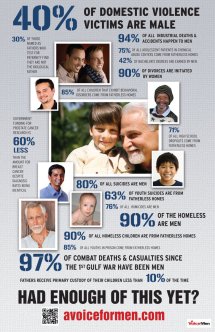 And? Yes? Go on? I don’t recall denying that. Firstly, when feminism addresses violence against women it does so with an understanding that this violence is structural, not just individual. There is not a systemic problem of violence against men by women. The power imbalance simply does not allow that. Now hold on. That does not mean there are not individual instances of violence perpetrated by women against men. But it does not come from rape culture, objectification, and entrenched cultural standards about men’s and women’s behaviour and romantic relationships.
And? Yes? Go on? I don’t recall denying that. Firstly, when feminism addresses violence against women it does so with an understanding that this violence is structural, not just individual. There is not a systemic problem of violence against men by women. The power imbalance simply does not allow that. Now hold on. That does not mean there are not individual instances of violence perpetrated by women against men. But it does not come from rape culture, objectification, and entrenched cultural standards about men’s and women’s behaviour and romantic relationships.
Secondly, just look at the stats. In Australia, less than 5% of men who experienced violence in a 12-month period were assaulted by a female partner or ex-partner. [Check out http://www.ausstats.abs.gov.au/Ausstats/subscriber.nsf/0/056A404DAA576AE6CA2571D00080E985/$File/49060_2005%20%28reissue%29.pdf] Also, “men’s violence is six times more likely to inflict severe injury and is more humiliating, coercive and controlling. Women’s violence is more likely to be expressive in response to frustration and stress rather than purposeful with the intention to control and dominate.” [Check out McKenzie, Sarah. Domestic violence reality check for the ‘manosphere’ [online]. Eureka Street, Vol. 23, No. 18, Sep 2013: 30-32: http://search.informit.com.au/documentSummary;dn=672075196326892;res=IELLCC]. That’s what I mean by entrenched cultural standards.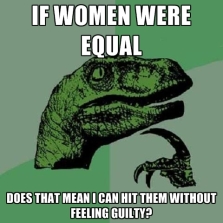
Similarly, if you say men who experience violence from a partner are discouraged by cultural norms to admit it, thank you for providing more evidence of the need for feminism. Which wants to smash such gendered norms as men being unemotional, stoic and needing to “man up.” We also want to smash the idea that violence is inherently masculine.
Male privilege? But dead soldiers, workplace accidents, homelessness, custody.
This always amuses me. Thanks for giving me more evidence of the damage done by patriarchy. Why are men sent to war and not women? Because apparently they are biologically stronger, more violent, and less important for nurturing children. Why more workplace accidents? They are more likely to work dangerous jobs that need a yellow “Men working” sign out the front. Why? Because they are seen as physically stronger and more suited to technical, practical activities such as factory work, construction and electrical work. Why homelessness? Men are not encouraged to rely on others. Women are more likely to rely on male romantic partners even when they are worse off in such relationships. Women are told they need to be protected, men are told they should be able to cope on their own and not ask for support. The ways men are taught to express their problems – through violence, alcohol and drug abuse – are also more likely to get them into trouble, destroy their support networks and make people more fearful of helping them. Again, patriarchy has created this situation. Why are men less likely to get custody of children? Simple. Patriarchy wants us to believe women are inherently more nurturing and therefore better at raising children.
Male privilege does not mean that in each and every situation men get their way. I won’t go in to hegemonic masculinity theory here – the fact that in each context, certain types of masculinity are privileged over other types, meaning some men are subordinated in favour of other men – but in a patriarchal society, men as a group are privileged over women as a group. Gendered ideas – such as men being physically strong and independent, and women being nurturing – work to uphold patriarchy, but that doesn’t mean those ideas won’t backfire on you in certain situations. The entrenched belief that women are more nurturing and should be the primary caregiver for children has benefited men in countless situations. To pick out one situation, such as custody battles, where it does not benefit them is to miss the point entirely.
Imagine sexism is a gun. Sure, it’s going to recoil on you sometimes, but that’s nothing like getting hit with the bullet.
Not all men.
 What you are doing here is putting your personal feelings above structural, entrenched misogyny. In the face of women expressing the myriad occasions they have experienced misogyny, you feel the need to point out that you are not personally at fault. Men who do this are derailing the conversation. In fact, they are reinstating the huge force of misogyny by flipping the conversation back to men.
What you are doing here is putting your personal feelings above structural, entrenched misogyny. In the face of women expressing the myriad occasions they have experienced misogyny, you feel the need to point out that you are not personally at fault. Men who do this are derailing the conversation. In fact, they are reinstating the huge force of misogyny by flipping the conversation back to men.
This comeback also misunderstands the entire point of feminism. It is not anti-men, it is anti-patriarchy. When we discuss misogyny, we are not discussing men abusing women, we are talking about a power structure that enables and normalises instances of abuse by men against women.
Not all men sexually assault women, punish them for moving through a public space, or neglect to listen to women musicians, read women writers and watch women-led TV and movies. But all men profit from patriarchy. So all men need to actively assess how this privilege helps them at the expense of women. How about instead of putting in your two cents about “Not all men,” you listen to the voices of the women telling you about their experiences of misogyny? And then you make an effort to disrupt that system.
On a related note, yes, “patriarchy hurts men too.” But that is not the fact that legitimises feminism.
“My mistrust [of men] is not, as one might expect, primarily a result of the violent acts done on my body, nor the vicious humiliations done to my dignity. It is, instead, born of the multitude of mundane betrayals that mark by every relationship with a man – the casual rape joke, the use of a female slur, the carless demonization of the feminine in everyday conversation, the accusations of overreactions, the eye rolling and exasperated sighs in response to polite requests to please not use misogynist epithets in my presence or to please use non-gendered language (“humankind).” – Melissa McEwan
“We live in a society that’s sexist in ways it doesn’t understand. One of the consequences is that men are extremely sensitive to being criticised by women. I think it threatens them in a very primal way, and male privilege makes them feel free to lash out. This is why women are socialised to carefully dance around these issues, disagreeing with men in an extremely gentle manner. Not because women are nicer creatures than men. But because our very survival can depend on it.” – Brianna Wu
Don’t you just have to chill out sometimes? I mean, I agree with you and all, but you’ve got to live in the world, and this is just how it is!
“Knowledge makes me more aware, it makes me more conscious. ‘Knowing’ is painful because after ‘it’ happens I can’t stay in the same place and be comfortable. I am no longer the same person I was before.” – Gloria Anzaldua
Guess what? Patriarchy wants us to keep silent, it wants us to let everyday misogyny go by unscathed. That is power’s greatest weapon: keeping itself invisible. That’s why it’s so awkward to call people out on their apparently “harmless” sexist or heterosexist remarks. I hate awkwardness. I want to avoid it as much as the next person. But also, knowing is painful. It means that those remarks that would have slipped by you before, or at most elicited an eyeroll, really sting. Because you recognise that it is just one more technique of disciplining, controlling, enacting violence. One thing I like to say is, “Hold on, I’m sorry?” Just put a halt to the conversation. They will have to explain. All of a sudden, a remark that would just be part of everyday flow is under the spotlight. They will see that perhaps it was not harmless. To make someone stop and think twice is a very powerful thing, even if they are a lost cause.
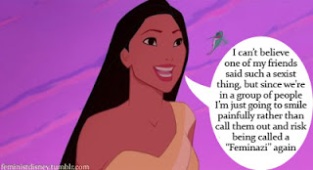 As Desmond Tutu reminds us: “If you are neutral in situations of injustice, you have chosen the side of the oppressor.”
As Desmond Tutu reminds us: “If you are neutral in situations of injustice, you have chosen the side of the oppressor.”
“I hate when people comfort the privileged. I want you to be uncomfortable. I want you to take notice of the people being killed, raped, beaten, alienated because of their identity. I want you to think about how the system favours you and what that means for others. I want you to reevaluate your actions to make sure you’re actively working against the systemic oppression of others. If you’re comfortable, then you’re in the wrong” – highly intelligent anonymous person.
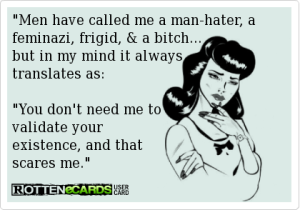 As for the pseudo-sympathetic plea, “You’ve got to live in this world, don’t y
As for the pseudo-sympathetic plea, “You’ve got to live in this world, don’t y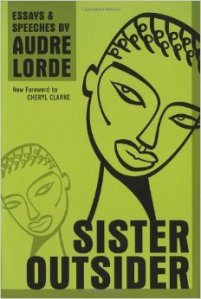 ou?” which has been put to me by pro-feminist people, no, I don’t want to live in “this world” as you call it if it means accepting your patriarchy and heteronormativity. There are some people who would prefer to go against the grain and we don’t live on other planets. So I think I can survive pretty well with my dangerous consciousness, as well as my shelves of feminist literature. Yes it’s exhausting. But falling into step with patriarchy is out of the question. If you want to take up the mantle, Audre Lorde gives us a rallying cry: “Sister outsider.”
ou?” which has been put to me by pro-feminist people, no, I don’t want to live in “this world” as you call it if it means accepting your patriarchy and heteronormativity. There are some people who would prefer to go against the grain and we don’t live on other planets. So I think I can survive pretty well with my dangerous consciousness, as well as my shelves of feminist literature. Yes it’s exhausting. But falling into step with patriarchy is out of the question. If you want to take up the mantle, Audre Lorde gives us a rallying cry: “Sister outsider.”
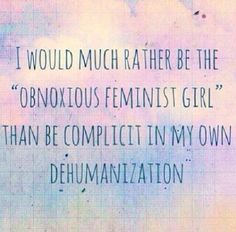 Let’s not give up all the ground we’ve won. Feminism should not be palatable to the patriarchy, that’s the whole point. You think feminists are man haters? Okay, fine. I’m not going to stroke your ego by telling you about all the men I love. You think feminists are ugly? You think feminists don’t shave? I’m not going to point to all the women whom the male gaze has deemed appealing and who are also feminists. You think feminists are lesbians? I’m not going to make you feel that feminists really need men after all, with something about “companionate” marriages from the 1950s. You think feminists can’t “get” a man? I’m not going to spout something about how a man should want a “strong” woman after all, because then he’ll know she’s with him because she cares, not because she’s forced into it! In truth all feminists are man-hating lesbians who do not shave, are hideously ugly and actually long for a heterosexual relationship because we actually know that’s the only fulfilling path in life and lesbianism is simply bitterness. Because those are your standards. Feminism wants new ones.
Let’s not give up all the ground we’ve won. Feminism should not be palatable to the patriarchy, that’s the whole point. You think feminists are man haters? Okay, fine. I’m not going to stroke your ego by telling you about all the men I love. You think feminists are ugly? You think feminists don’t shave? I’m not going to point to all the women whom the male gaze has deemed appealing and who are also feminists. You think feminists are lesbians? I’m not going to make you feel that feminists really need men after all, with something about “companionate” marriages from the 1950s. You think feminists can’t “get” a man? I’m not going to spout something about how a man should want a “strong” woman after all, because then he’ll know she’s with him because she cares, not because she’s forced into it! In truth all feminists are man-hating lesbians who do not shave, are hideously ugly and actually long for a heterosexual relationship because we actually know that’s the only fulfilling path in life and lesbianism is simply bitterness. Because those are your standards. Feminism wants new ones.
All of us feminists know the truth of Lewis’ Law: “the comments on any article about feminism justify feminism.” Backlash against feminism shouldn’t determine its priorities. After all, the goal of anti-feminism is to discredit it. The patriarchy has made it perfectly clear what scares it the most: a woman whose entire life, daydreams and self-worth don’t depend on a man, but on herself. And, God forbid, on her vast web of human relationships. 